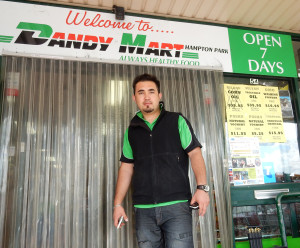Refugees excel at business – ABS data shows
Refugees have among the highest rate of business ownership among new arrivals to Australia, according to new data released the Australian Bureau of Statistics (ABS).
For the first time, anecdotal evidence and stories about the entrepreneurial refugees has been confirmed by hard data looking at the incomes of all migrant groups in Australia.
The data is taken from the 2009-10 financial year and also includes the sources of income for skilled and family migrants.
As a group, migrants to Australia earned $38 billion in total income in 2009-10, with the largest segment of those taxpayers, skilled migrants making up 63 per cent of the migrant population and earning $26 billion in income from paid employment.
But the ABS data shows refugees, while making up just 4 per cent of the migrant population – 31,728 people – reported a higher proportion of income from their own unincorporated businesses compared to skilled and family migrants.
Overall, refugees – or those who arrived in Australia under the United Nations Humanitarian Refugee Scheme – earned a total of $888.8 million in income during 2009-10.
Of this amount, almost 5000 refugees reported $83 million from their own unincorporated businesses, which equates to 9.3 per cent of income earned by humanitarian migrants in the same year and almost double the average contribution of business owners among skilled and family migrants.
Male refugees reported 90 per cent of $74.6 million of all unincorporated business income earned by refugees and were overwhelmingly aged between 25-44 years old.
The data also shows a higher than average proportion of refugees open small or medium size businesses, compared to other migrant groups, and the amount of income earned by them through their own unincorporated businesses also increases at a faster rate compared to skilled and family migrants who earn money through their own businesses.
In particular, the ABS found a sharp increase in the proportion of refugees reporting income from their own businesses after five years of residence in Australia.
The percentage of this group reporting own business income jumped from just under 10 per cent after five years in Australia to around 27 per cent after eight years in the country.
CEO of refugee settlement agency AMES Australia Cath Scarth said refugees were often resilient people willing to take risks and many had strong business acumen.
“If someone is willing to leave their home and everyone and everything they know even under extreme circumstances, it shows they are resilient and resourceful people,” Ms Scarth said.
“Many refugees and other newcomers to Australia are very intent on showing they can make a contribution and bring value to the community in which they live,” She said.
Coordinator of an entrepreneurs program at the Asylum Seeker Resource Centre (ASRC) and a co-founder of Thankyou Group Nicolette Ranieri said the ABS data backed up what she and her colleagues at the ASRC have been seeing at an anecdotal level.
“Anecdotally we know refugees and asylum seekers bring value to the community through their own businesses and it’s fantastic to see this in the ABS stats,” he said.
Twenty-two year old Afghan refugee Khan Hazara is the owner and manager of a burgeoning halal supermarket in Hampton Park, in Melbourne’s south east.
As a member of the persecuted Hazara ethnic minority, he was forced to flee his homeland.
After travelling to Indonesia and then by boat to Christmas Island, he was finally given refugee status in Australia.
He studied business management and worked in a bakery at nights. Now he runs his own supermarket.
“My secret is a simple one,” Khan says. “Hard work, confidence and trust in myself to be able to achieve what I set out to do.”
“If you work hard and persevere, it is possible to become successful no matter what odds are against you,” he said.
Skye Doyle
AMES Australia Staff Writer













